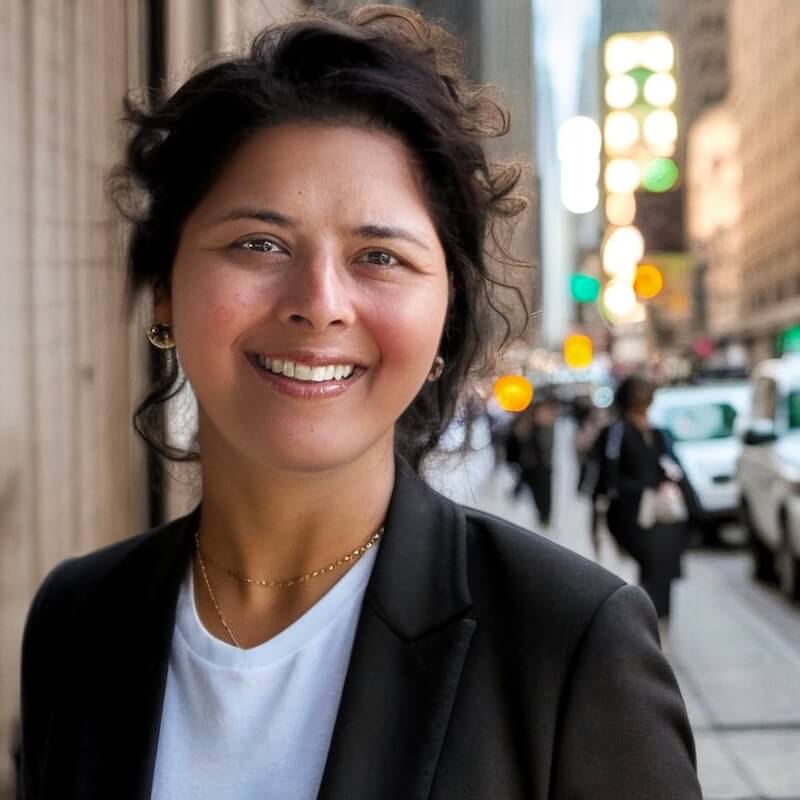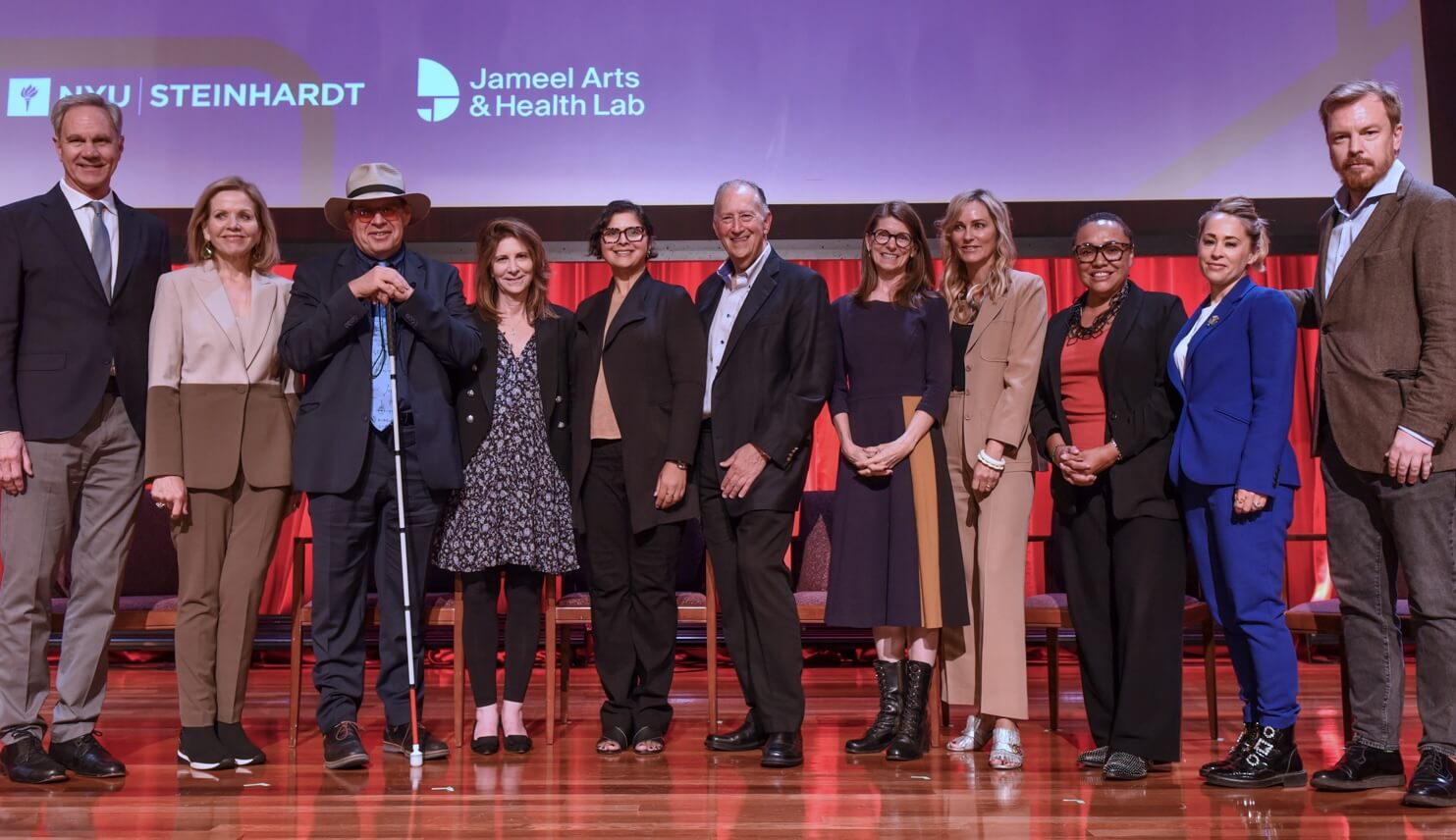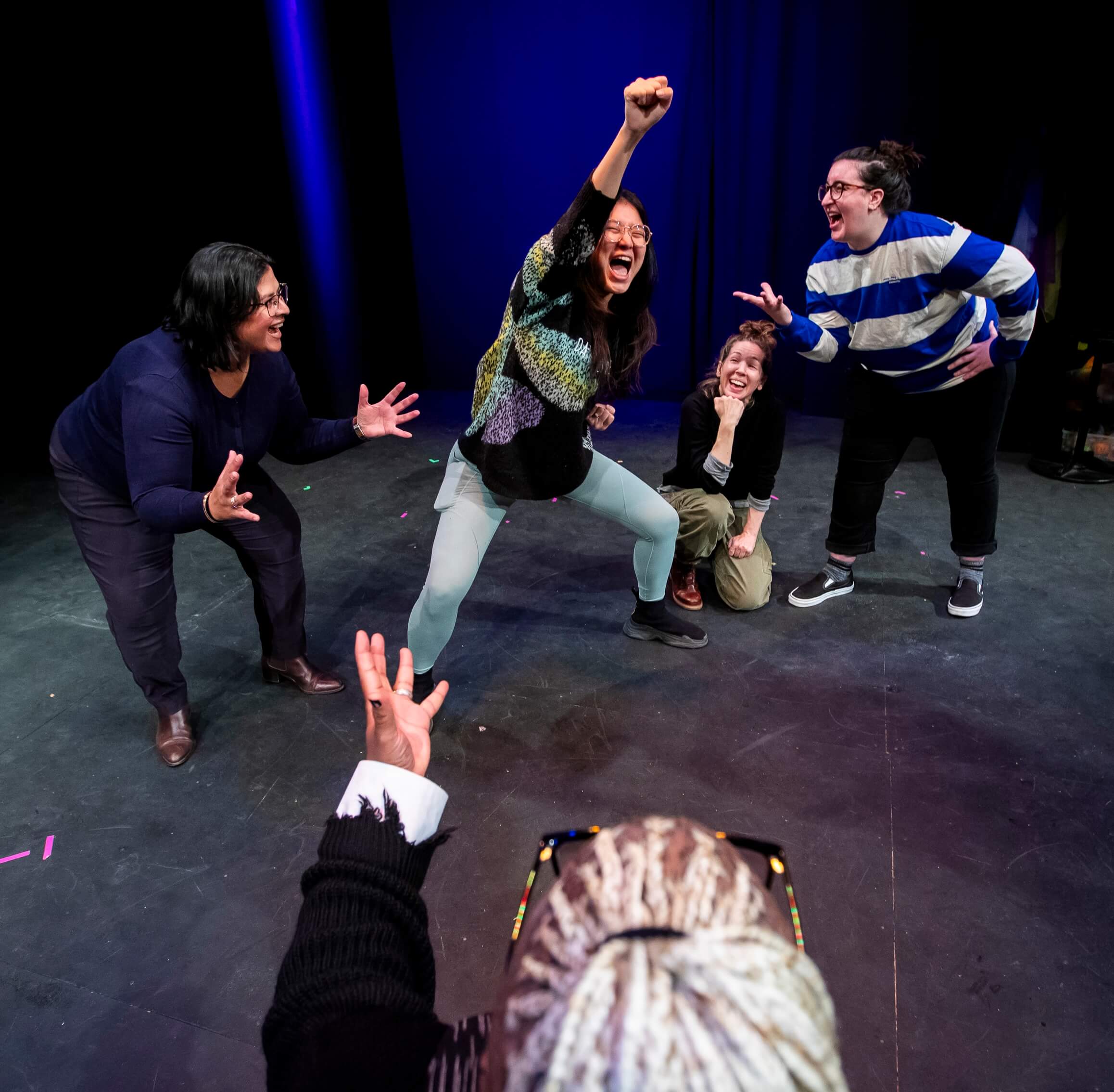
Faculty Spotlight
Nisha Sajnani
Associate Professor and Director, Graduate Program in Drama Therapy; Co‑Founding Co‑Director, Jameel Arts & Health Lab
My research explores how aesthetic experiences—through the arts and arts therapies—can advance equity, care, and connection in clinical and public health contexts. Through my work with the Jameel Arts & Health Lab, established with the World Health Organization, I lead a network of researchers who investigate relationships between the arts and health across disciplines and geographies, with a focus on systems-level change. In drama therapy specifically, my work examines the mechanisms and health outcomes associated with theatremaking and performance.
I enjoy all of the courses that I teach! But I will say that I’m continually inspired by teaching Can Art Save Lives?, a course I developed to invite students to think critically and creatively about the role of the arts in shaping health, justice, and social transformation. We explore real-world examples of artistic activism and care—from singing as a means of increasing lung capacity to dance as a means of regaining motor control to theatre in humanitarian contexts. Students begin to imagine themselves as artists in their own lives, curating their own creative contributions to a more cohesive, resilient, beautiful, and equitable world. I have taught this course at NYU Abu Dhabi, NYU London, and look forward to teaching it at NYU Steinhardt.
I also love teaching Improvisation and Leadership Communication at NYU Stern because it brings the power of presence, play, and adaptability into the heart of business education. Guiding future leaders to listen deeply, respond authentically, and embrace uncertainty with creativity is both energizing and essential—especially in a world that demands courageous, collaborative, and human-centered leadership.
Teaching An Introduction to Arts-Based Research for graduate students is one I particularly enjoy because it expands our understanding of what counts as knowledge. This course allows students to engage in rigorous inquiry using the tools of the imagination—story, image, performance, and sound—as legitimate methods of discovery and expression.

Nisha at the 2024 UN General Assembly Healing Arts Week on the Art and Science of Social Connection, with from left: Dean Jack Knott (Steinhardt), Renée Fleming (Soprano), Jeremy Nobel, MD, Linda Mills, President, NYU, Christopher Bailey (WHO Arts & Health Lead; Co-Director Jameel Arts & Health Lab), Dr. Jill Sonke (UF Center for Arts in Medicine), Larissa Trinder (Assist. VP Arts in Medicine, NYC Health + Hospitals) Dr. Maria Rosario Jackson (Former Chair of the NEA), Catherine Cassidy (Scottish Ballet), and Stephen Stapleton (CEO, Culturunners; Co-Director, Jameel Arts & Health Lab)
Drama therapist and psychologist David Read Johnson’s mentorship has been a guiding presence in my life and work. His endless curiosity and belief in the transformative potential of play continue to inspire me. David taught me to embrace change and contradiction not as something to fear, but as a space of possibility—and to lead with courage, humor, and hope.
I would have loved to meet Audre Lorde and bell hooks—if they were still with us. Their lifelong works exploring love, healing, education, and liberation through a lens of radical care and critical thinking align with my values. I’d love to have a conversation with Arundhati Roy because of her blend of literary brilliance and unflinching political clarity, or perhaps photographer Zanele Muholi whose works carry an inherent dignity. I’d also love to meet Stromae (Paul Van Haver) because his music and performances create space for emotional honesty, confronting mental health struggles, social isolation, and vulnerability with rhythm, style, and radical empathy. His music reminds us that creative expression itself can be a public health intervention.
I would lean into my love of cultural production—curating experiences that heal, provoke, and connect—through theater, music, and socially engaged art that builds community and sparks systems change. The good news is that I enjoy opportunities for artistic direction now which continue to bring me into contact with inspiring people and possibilities.

My work examines the mechanisms and health outcomes associated with theatremaking and performance